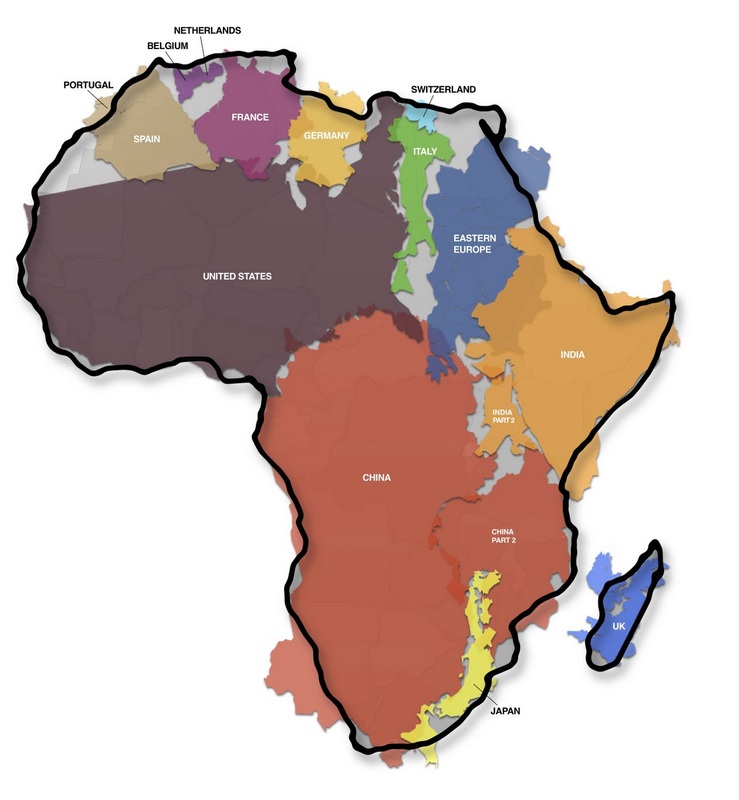Have you ever read those things like "You are now aware of blinking. You are also now aware of your tongue in you mouth.". And suddenly you are increasingly uncomfortable by paying attention to those things? The cause of this is selective attention and surprise surprise, it is a psychology term. There is just so much to learn and write about psychology. Selective attention is your brain's ability to focus only on things that are important to your perception at that moment. It's really an amazing thing. Imagine the trouble you would have functioning in real life if you constantly paid attention your clothes brushing against your skin? You would never have time to think of anything else! It is our brains way of making sure we can advance in our thinking, and think of new, innovative ideas. The concept interests me, so when I saw an article on bbc about it I decided to check it out, see what it says. They also mention the interesting fact that your eyes are the only sense that never do this. You eyes never use selective attention. They are constantly moving in their sockets; just a tiny bit, but always moving. If you've ever pressed your fingers to the outside of your eye sockets for more than a few seconds, you will find that your vision starts going black. This is because once your eyes stop moving, they stop taking in new information, and thus start ignoring the image that's being sent over and over again. Just a kind of interesting concept!
It seems like everyone in the sixties had a cause, and had something very loud to say about it. I think it is such an interesting time to learn about, with so much going on and so much changing. The world was going from the conformities of the fifties to the wild sixties and from there into what we are today. During the sixties people questioned authority, and questioned how things were and why they were that way. Most of all, they questioned how they could change the wrongs that were happening. In spanish I heard of a movement that happened around this time that involved the Chicanos of Los Angeles. Like most of the protesters of the time they were young. In high school actually; my age. Like many Latinos in Los Angeles, they were congregated on the upper east side, which was not a nice neighborhood. The schools they went to were just as bad, with little oppotunities to get ahead and teachers who didn't care. In their schools they were not allowed to speak spanish, or speak of their heritage. They were demeaned by the faculty, and their resources were minimal. During this movement they found pride in their heritage and demanded to be treated like full U.S. citizens. Like many other movements, it got violent. But they got their message across by a series of "walk-outs" from school. I thought that it was a very interesting story, and interesting to see the parallels between the different movements of the sixties for equal civil rights.
Learning about the United State's history has made connections between a lot of news stories we have been following this year. For one, it shows me how the development of our country compares to the development of the democracies that are developing in the arab spring. It also helps me understand references to our history in other stories. For example this story mentions the watts riots in Los Angeles in 1965. (link). This man, Nathaniel Montague, or "Magnificent Montague", has been searching for and collecting historical items that deal with African American history for fifty years. His collection is really amazing. He has pieces that are rare, one of a kind, and he doesn't collect things that were mass-produced, or are common. His collection has not even been valued because of the sheer extent of it, and the huge amount it would come to. Five of the pieces alone were estimated at up to $940,000. He has pieces from famous authors and civil rights activists, including Booker T. Washington and W.E.B. Du Bois. The sad part is the man cannot keep his hard earned collection, as he has fallen into bankrupcy. All the people involved really admire what he has done, and really believe in the value of the collection he has amassed. They are trying hard to make sure that his collection that he has created will be able to stay in one piece, and be put somewhere that will be available to the public. He is very grateful that they are being so careful with his life's work, and says that he would be more than content if they could make it into a museum of some kind.
It has been awhile since Libya was freed from Gaddafi's control. At the time I knew what was going on, but I did not REALLY know what was going on. All I knew was that Gaddafi was oppressive and that Libya was fighting for it's freedom. This article, or this series of pictures I guess, has shed some light on exactly what Gaddafi did to oppress the Libyan people. There are pictures of people cycling, boxing, painting, sitting and having coffee and doing other leisurely activities that were all banned before Gaddafi's fall. Boxing was banned for the reason that Gaddafi (who was quite violent himself) deemed it too violent. A boxing champion got his hands smashed by a hammer after the anti-boxing law was passed. He has now opened a successful boxing studio. There are pictures of people cycling, which was deemed to "elitist" by Gaddafi. Pictures of people repainting store fronts with colors other than black, red, and green (the colors of the Libyan flag). Pictures of people sitting and having coffee outside a shop that has letters in a non-arabic language, which was previously outlawed. People there are enjoying their new freedom, and there seems to be a lot of hope for the future. There is a special amount of interest in the new political parties that are forming there.
http://www.bbc.co.uk/news/world-us-canada-17941778
Osama Bin Laden was killed on May 2nd, 2011, more than two years ago. So why are we still talking about it so frequently? It has even become a campaign issue, with Obama putting it in his campaign commercials. I think because he was such a imposing figure to the American mind. When he was killed it was a relief to us. I haven't been following the story that carefully, I'll admit it. So when I read this article, a lot of things cleared up for me. For instance, I didn't understand before when he was called the leader of these militant groups, and why people thought that this one man had so much power. I didn't think of al-Qaeda or the Taliban as organized groups. So this article made a lot of things make sense. It explains that he was the leader of an organized group that was getting away from his control. Some of the documents found with him were released to the public (link to documents) and they show that his subordinates were taking things into their own hands, and that the violence he started was running away from him. There are parts where he is angry at a subordinate for attacks done on everyday muslims, and urges attacks on the United States instead. There is also a part where he urges militants to look out for opportunities to assasinate the President when he visits their country. Although he does point out that it is not necessary to assasinate Joe Biden because he is totally unsuited for the office of president. Which is embarrassing. I know that we already did a response about that picture, but it is still kind of getting to me. The picture really brought home how little mental space Africa takes up in the minds of the people of the western hemisphere. We do not think about it much at all, do we? And I think that it is really a shame how little we think about it, and how much we generalize it when we do. The part of the discussion that talked of the generalization of Africa really interested me. Because I realized that I DO generalize Africa, I DO think of it as a country, not a continent comprised of many different countries. One reason that we shouldn't generalize Africa is that it is probably one of the most diverse places in the world, culturally. If you think about it, their's is a very tribal culture, meaning that two towns a day's walk away from each other could have developed completely different cultures. Think of the Hutus and Tutsis of the Rwandan genocide. They developed two tribal cultures despite living side by side. I think that if the people of Africa knew how we thought, with our generalizations they would be almost offended. I know I would be offended if people assumed all Americans (including me) were fat, lazy, and really into football. It just really enforces the stereotype that we are ignorant of the rest of the world in America.
http://www.bbc.co.uk/news/world-africa-17890432
So we haven't talked about Kony 2012 in awhile. After their leader had a meltdown and did innapropriate things in public, their campaign got somewhat discredited and people stopped talking about it. I am not even sure about how their April 20th campaign went, and if anything even happened. (Which would be something that I would be interested in knowing). So when I saw this story I thought "Why not? maybe something is happening." . This article asserts that Sudan is helping the Lord's Resistance Army. The Sudanese government is obviously denying the charges (who would admit to them?), but people do not seem very convinced. Another point of the article that I found interesting was that they said the "point" of Joseph Kony's army is to create a civilization that follows the Christian ten commandments, which is not something I had heard before about the criminal. It also talks about how the United States has one hundred advisors there trying to help out the Ugandan Army. So the Kony 2012 campaign did do something. But the article also talks about how the advisors can't do much because the LRA isn't using technology, so they are hard to track. |


 RSS Feed
RSS Feed